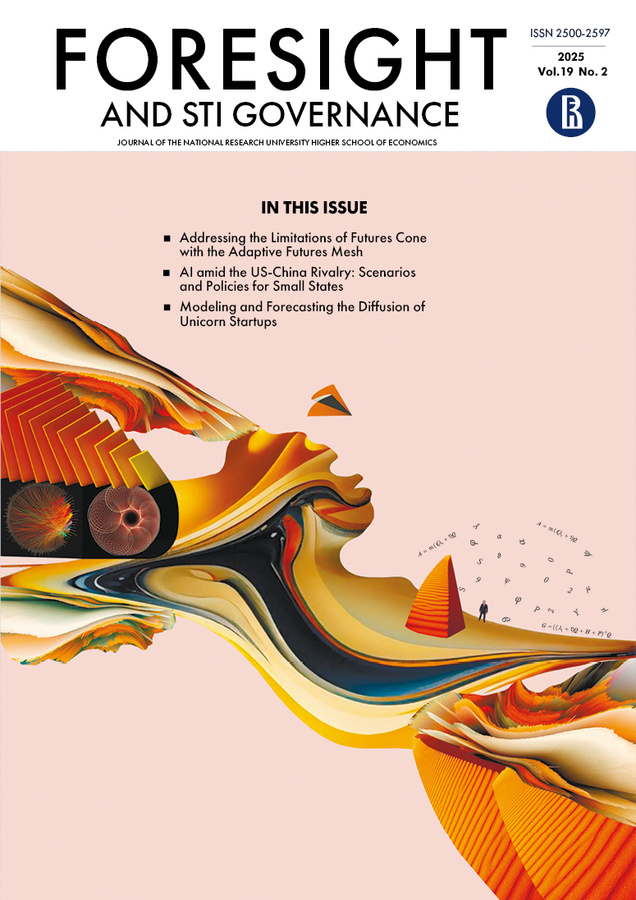Structure, Challenges and Opportunities for Development of Entrepreneurial Education in Russian Universities
- Authors: Zobnina M.1, Korotkov A.2, Rozhkov A.1
-
Affiliations:
- HSE University
- Moscow Institute of Physics and Technology (MIPT)
- Issue: Vol 13, No 4 (2019)
- Pages: 69-81
- Section: EDUCATION
- URL: https://journals.rcsi.science/1995-459X/article/view/347003
- DOI: https://doi.org/10.17323/2500-2597.2019.4.69.81
- ID: 347003
Cite item
Abstract
A panel of 21 Russian Universities was used to verify the integrated UEE model using the method of co-operative inquiry. The role of entrepreneurial courses in UEEs is illustrated herein with the use of 4 cases of Russian universities.
Among the key findings of this research is that the implementation of entrepreneurship education courses configures the UEE development model centered around the education course. UEE formation begins with the personal development of individuals as the course ingrains an entrepreneurial mindset and related skills in students, and attracts entrepreneurs and business angels for mentoring roles and project development activities. Next, supporting institutions like incubators and accelerators are established from scratch, or existing ones are engaged to assist further student project development. As a result, emerging elements of UEE are actively engaged around the development of student startups.
Further case analysis suggests that the professors’ academic background and entrepreneurial experience, as well as the course format (e.g. elective or compulsory) are not a necessary prerequisite for the successful initiation and development of UEE, provided the course is project based and generates a stream of student startups. Professors’ skills are complemented through the ecosystem, and some cases describe successful course launches by other ecosystem actors. It is also apparent that many universities pursue entrepreneurship education through sporadic infrastructure development, or through a more detached entrepreneurship course implementation.
About the authors
Margarita Zobnina
HSE University
Email: mzobnina@hse.ru
Anatoly Korotkov
Moscow Institute of Physics and Technology (MIPT)
Email: korotkov.av@phystech.edu
9, Institutsky per., Dolgoprudny 141701, Moscow Region, Russian Federation
Aleksandr Rozhkov
HSE University
Email: arozhkov@hse.ru
References
- Alaref J., Brodmann S., Premand P. (2019) The Medium-Term Impact of Entrepreneurship Education on Labor Market Outcomes: Experimental Evidence from University Graduates in Tunisia. Washington, D.C.: The World Bank.
- Audretsch D.B., Thurik A.R. (2001) What's new about the new economy? Sources of growth in the managed and entrepreneurial economies // Industrial and Corporate Change. Vol. 10. № 1. Р. 267-315.
- Autio E., Keeley R.H., Klofsten M., Ulfstedt T. (1997) Entrepreneurial Intent among Students: Testing an Intent Model in Asia, Scandinavia and USA // Frontiers of Entrepreneurship Research. Proceedings of the 17th annual Entrepreneurship Research Conference / Ed. P.D. Reynolds. Wellesley, MA: Babson College. P. 133-147.
- European Commission (2013) Entrepreneurship 2020 Action Plan. Brussels: European Commission.
- Fayolle A., Gailly B. (2015) The impact of entrepreneurship education on entrepreneurial attitudes and intention: Hysteresis and persistence // Journal of Small Business Management. Vol. 53. № 1. P. 75-93.
- Feld B. (2012) Startup communities: Building an entrepreneurial ecosystem in your city. Hoboken, NJ: Wiley.
- Gorman G., Hanlon D., King W. (1997) Some research perspectives on entrepreneurship education, enterprise education and education for small business management: A ten-year literature review // International Small Business Journal. Vol. 15. № 3. Р. 56-77.
- Greene P., Rice M., Fetters M. (2010) University-based entrepreneurship ecosystems: Framing the discussion // The development of university-based entrepreneurship ecosystems: Global practices / Eds. M. Fetters, P. Greene, M. Rice. Cheltenham: Edward Elgar Publishing.
- Heron J., Reason P. (2006) The practice of co-operative inquiry: Research ‘with' rather than ‘on' people // Handbook of Action Research. Vol. 2. Thousand Oaks, CA: Sage. P. 144-154.
- Isenberg D. (2011) The entrepreneurship ecosystem strategy as a new paradigm for economic policy: Principles for cultivating entrepreneurship. Dublin: Institute of International and European Affairs.
- Isenberg D. (2014) What an entrepreneurship ecosystem actually is // Harvard Business Review. № 5. Р. 1-7.
- Johannisson B. (1991) University Training for Entrepreneurship: A Swedish Approach // Entrepreneurship and Regional Development. Vol. 3. № 1. Р. 67-82.
- Katz J. (2003) The chronology and intellectual trajectory of American entrepreneurship education 1876-1999 // Journal of Business Venturing. Vol. 18. № 2. Р. 283-300.
- Luthje C., Kranke N. (2003) The Making of an Entrepreneur: Testing a Model of Entrepreneurial Intent among Engineering Students at MIT // R&D Management. Vol. 33. № 2. P. 135-147.
- Mason C., Brown R. (2014) Entrepreneurial ecosystems and growth oriented entrepreneurship. Paris: OECD.
- Pittaway L., Cope J. (2007) Entrepreneurship education: A systematic review of the evidence // International Small Business Journal. Vol. 25. № 5. Р. 479-510.
- RVC (2016) National report on innovations in Russia, 2016. Moscow: RVC, Open Government, RF Ministry of Economic Development. Режим доступа:https://www.rvc.ru/upload/iblock/6c5/20161025_2200_Forum_OI_eng.pdf, дата обращения 10.07. 2019.
- RVC (2017) Impact assessment of university-linked business incubators and accelerators. Moscow: RVC, UBI Global, HSE. Режим доступа:https://www.rvc.ru/upload/iblock/c78/UBI_Global-Russia-Impact_Assessment_University-Linked_Business_Incubators_Accelerators_EN.pdf, дата обращения 10.07. 2019.
- Valerio A., Parton B., Robb A. (2014) Entrepreneurship education and training programs around the world: Dimensions for success. Washington, D.C.: The World Bank.
- Van de Ven A. (1993) The development of an infrastructure for entrepreneurship // Journal of Business Venturing. Vol. 8. P. 211-230.
- WEF (2009) Global Education Initiative. Educating the Next Wave of Entrepreneurs. Geneva: World Economic Forum.
- Коротков A., Зобнина M. (2019) Стандарты предпринимательской экосистемы университета: рекомендации по развитию предпринимательской экосистемы. M.: НИУ ВШЭ.
- Чепуренко A. (2017) Как и зачем обучать студентов предпринимательству: полемические заметки // Вопросы образования. № 3. С. 250-276.
Supplementary files









